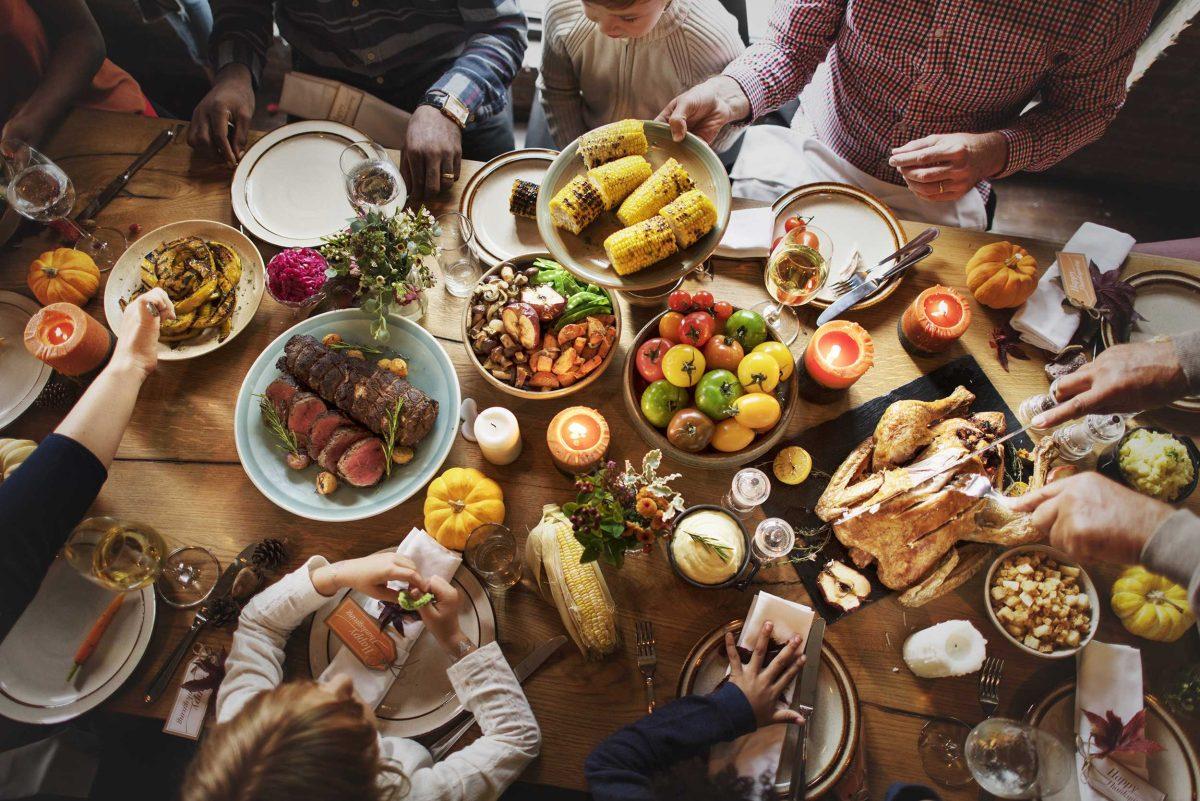Across the country, millions of people are bracing themselves for what could be the most traumatic event of the year: the annual family political discussion at Thanksgiving.
It all begins with a sly whisper, the disgruntled mumbling of a rogue ad hominem between bites of food. As if the entire evening had been mounting to this moment, a volley of bitter replies burst forth and chaos erupts.
There is no turning back: the dinner table becomes a battlefield for political conversations.
Okay, I’ll admit it — after a year like 2020, this hyperbole probably does not hit home the way it usually would around this time. Let’s not pretend a few family squabbles could phase us at this point.
However, as we officially enter the holiday season next week, I can’t help but think about how much unnecessary stress and tension is provoked by our incapacity for substantive conversation.
The archetypal scene of the holiday squabble, embedded in the American psyche, is the subject of Saturday Night Live skits and sitcom episodes. It’s almost a cliché – impossible to talk about without conjuring up a somewhat comical caricature.
I have read countless op-eds and cultural diagnoses which depict this phenomenon of familial fissures as simply a microcosm of the country’s larger political divisions.
This might very well be true, but why is no one talking about how concerning it is that our most fundamental relationships are becoming politicized in such a pervasive and destructive way?
To be clear, I have no qualms with starting hot button conversations at the dinner table. In fact, I think actual discussion is what we need from our families most right now.
Yet one of the reasons political divisions among families can be thought of as so analogous to national divisions might be how easily rational discourse devolves into nonsensical, dehumanizing slander.
More and more have I seen political disputes damage the way family members interact with each other.
For this reason, I know many who experience the “pre-dinner talk,” in which their parents or grandparents, in an attempt to mitigate the damage done in ideological crossfire, make politics an explicitly taboo topic during family gatherings.
If all of us were legitimately interested in bettering our political situations, it seems cultivating an atmosphere of civil political discourse, especially among our own families, would be a number one priority.
Besides, what does this behavior saymbers in our families? How can we expect to raise a generation of individuals who are capable of taking on the mantle of public life when their own families can’t even engage in civil political discussion?
I don’t expect the 2020 holiday season to be anything less than an especially fiery hotbed of dinner table politics. However, in light of this year’s isolation, perhaps a revived hope for community and connection can help change the way we discuss serious issues with our loved ones.
Evan Leonhard is a 20 year-old English and philosophy junior from New Orleans.
Opinion: We need to learn to have civil political discussions with our families
November 22, 2020
Thanksgiving dinner








